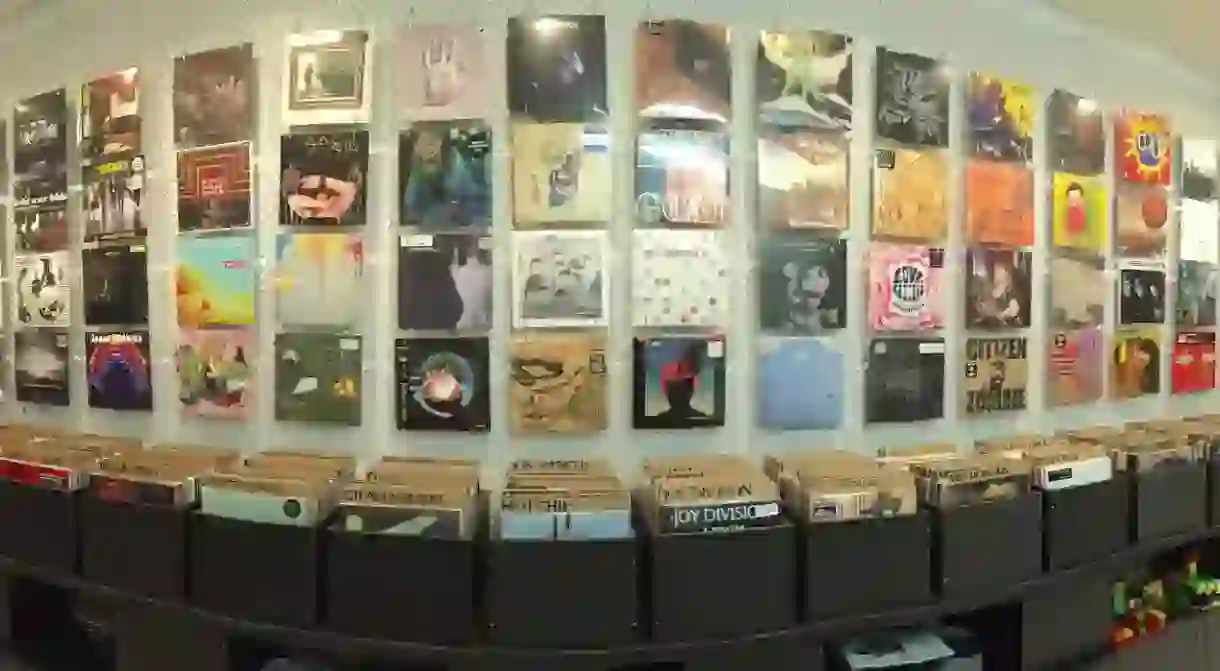The Dirty History of Parental Advisory Labels

After listening to Prince’s “Darling Nikki”, Tipper Gore created the Parents Music Resource Center (PMRC) and launched a campaign to use “Parental Advisory” labels to warn parents against music with explicit, or “obscene” content, not anticipating that the label would make teens covet explicit music even more.
Those of us who came of age before the popularity of the mp3 might remember peeling off a black and white label reading, “PARENTAL ADVISORY EXPLICIT CONTENT”, from a new album before mum could see that you had bought the uncensored version.
The labels themselves first started when Tipper Gore gifted Prince’s album, Purple Rain, to her daughter and was shocked by a reference to female masturbation in the song “Darling Nikki”. Gore, who at the time was the wife of then Senator Al Gore, would become the United States’s “Second Lady” when her husband served as vice-president under Bill Clinton.
Concerned that explicit content in music has harmful for young fans, Gore, along with three other Washington DC women whose husbands pulled varying degrees of political, formed the Parents Music Resource Center (PMRC).The group compiled a list of songs dubbed the “Filthy Fifteen”, that they felt fell under the classification of “porn rock”. The list included works by Madonna, Prince, Twisted Sister, AC/DC, Cyndi Lauper, and Def Leppard, among others.

The PMRC successfully brought the issue to a congressional hearing in September 1985, a mere five months after their formation. It is easy to assume that the congressional hearing aimed to create legislation, but the PMRC’s only goal was to influence the Recording Industry Association of America (RIAA) to voluntarily enforce the Parental Advisory label (PAL).
At the congressional hearing, musicians Frank Zappa, Dee Snider and John Denver testified against what they saw as artistic censorship. Zappa also called the hearing a waste of government resources claiming the issue would have never been brought to congress had the women involved with the PMRC not been married to powerful men.
Nevertheless, either due to arguments brought up at the hearing, or increasing public pressure, the RIAA decided to comply with the PMRC’s request and created a labeling system for records that were deemed “obscene”. After various negotiations with the PMRC, the RIAA decided that albums with songs that had “strong language” would carry a label. The British Phonographic Industry (BPI) adopted a similar labeling practice for the UK in the 1990s.

The system was by no means perfect. As the industry was self-regulating, labelling was somewhat unclear. Famously, there was confusion about Frank Zappa’s 1986 album Jazz from Hell. Owing to the use of “hell” in the title, and his fervent opposition to the PMRC, the album was marked with a PAL in some stores. However, the music itself was entirely instrumental and therefore could not have contained anything more offensive than controversial chord changes.
While “porn rock” was the main focus of the PMRC congressional hearing, it was the rising popularity of “gangsta rap” in the late 80s that really motivated parent groups to pressure the RIAA on the issue of PALs. NWA’s Straight Outta Compton was one of the first albums to get a PAL in 1988.
Initially, musicians were concerned that PALs would bring down sales. When the US megastore, WalMart, announced they would not carry albums with PALs, it did look like the labels might hurt artists. However, as most parents know, when you tell a child what they can’t have, it suddenly becomes more appealing. Fans of rap music, and what the PMRC classified as “porn rock” were already drawn to the genres because of their anti-establishment messages. PALs bolstered this identity.
In 1997, the New York Times reported that “record companies often use the labels as a marketing tool to advertise dirty lyrics and that rap records tend to get labeled more often than rock albums that are every bit as explicit.” Artists like NWA gained more notoriety when their albums featured a PAL. On the Straight Outta Compton album, they even released a song called “Parental Discretion Iz Advised”, which celebrated the explicit nature of their music.
Of course, PMRC’s concerns about explicit music were the same concerns that parents have had about pop culture throughout history. In the 19th century, the penny dreadful was feared to corrupt Britain’s youth. By nature of social evolution, the pop culture of younger generations will always be regarded with suspicion by their elders.

In the age of the internet the labelling system has become largely obsolete, but its introduction has a lot to tell us about the continual struggle between young people who want to push boundaries, and older generations that want to maintain the status quo.













